Tackling the Climate Crisis: Real Policies for Real Zero
11 December 2023
In the run up to COP28 climate change experts explored the actions required to tackle the climate crisis. The full event video is included below.
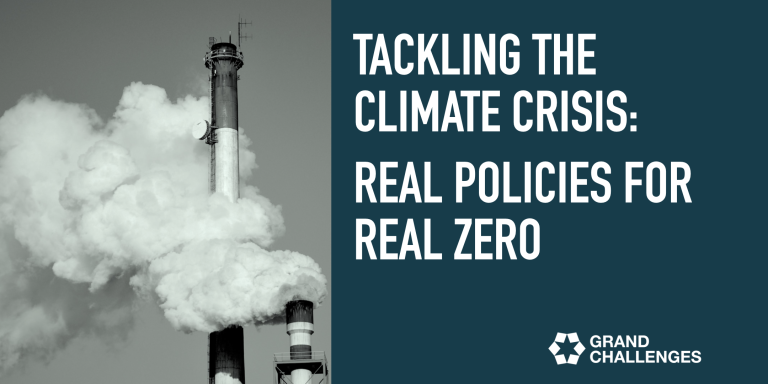
UCL Grand Challenges together with Professor Paul Ekins (UCL Institute for Sustainable Resources) hosted ‘Tackling the Climate Crisis’, an evening of climate change discussion on 21st November 2023. The panel – held just 10 days before COP28 in Dubai – discussed the actions needed from governments, businesses, and citizens to tackle the growing climate crisis.
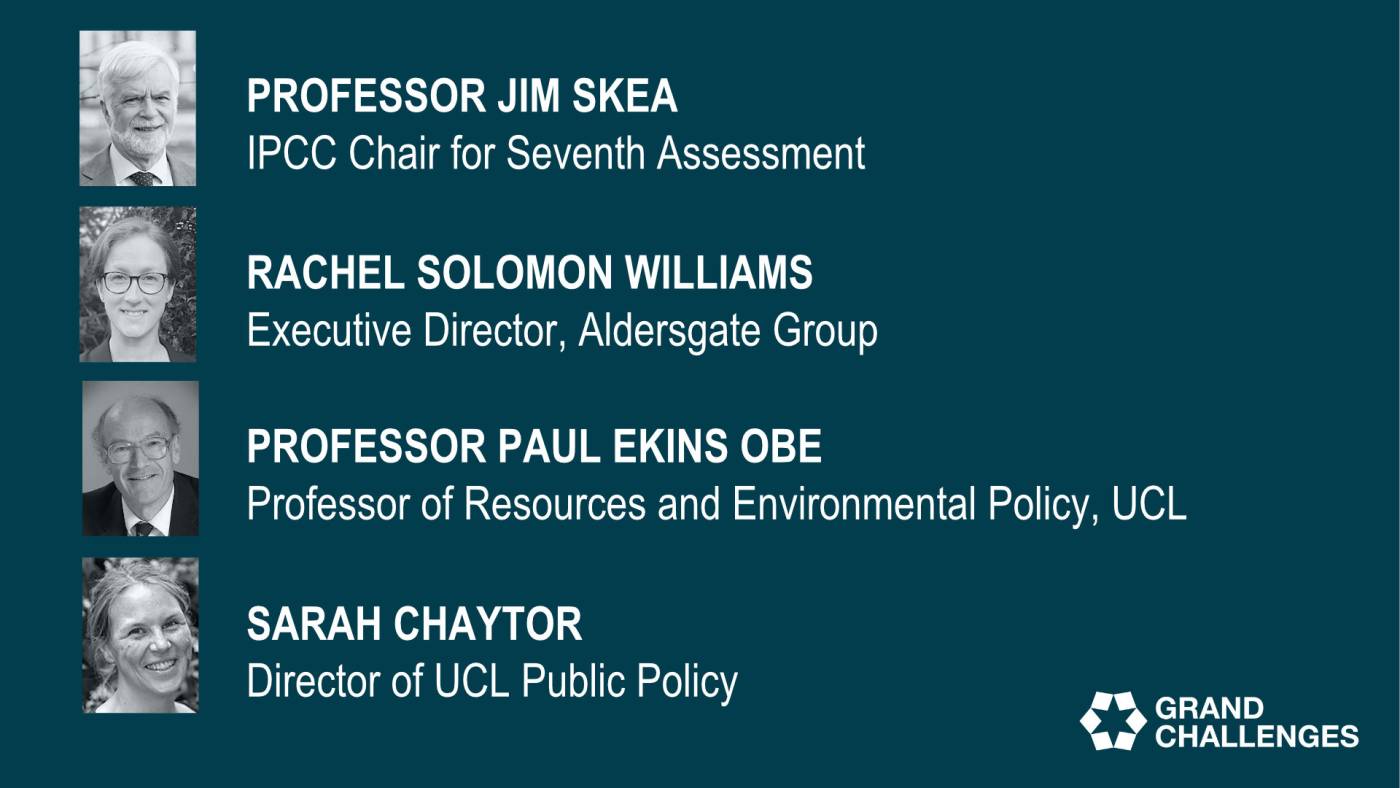
The line up for the Stopping Climate Crisis event
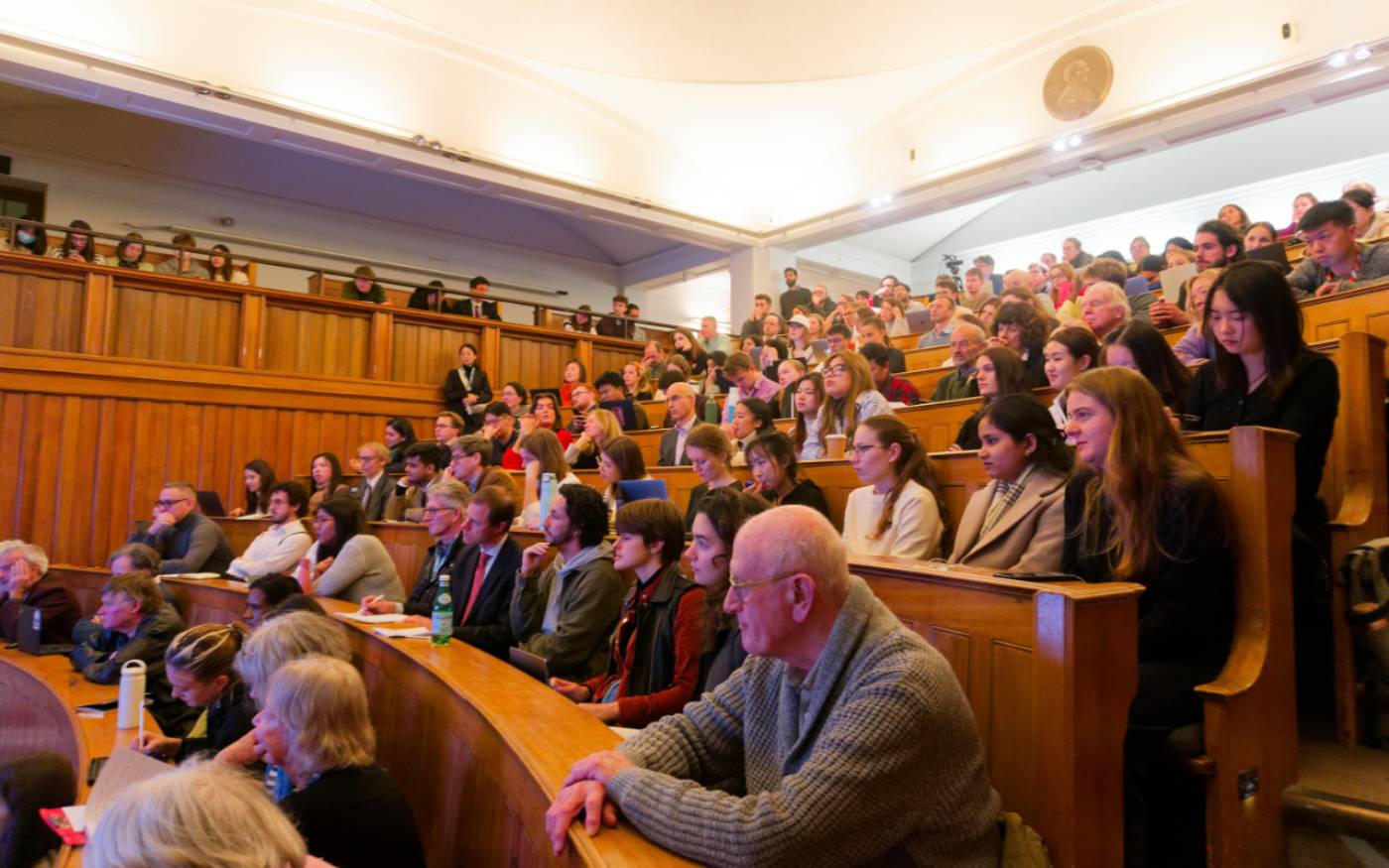
The audience at the Stopping Climate Crisis event
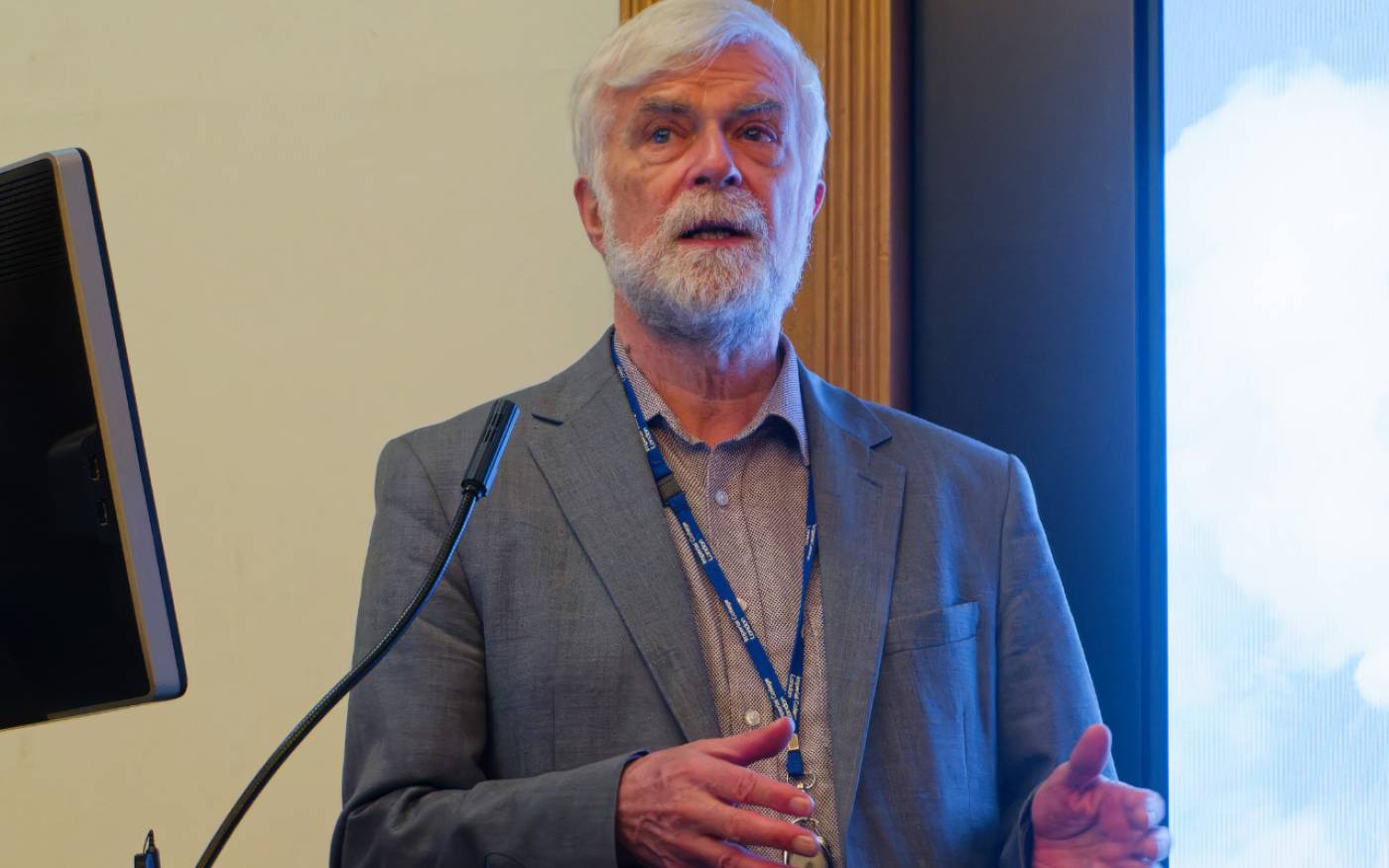
Prof Jim Skea, Professor of Sustainable Energy at Imperial College London and Chair of the IPCC for its seventh assessment cycle
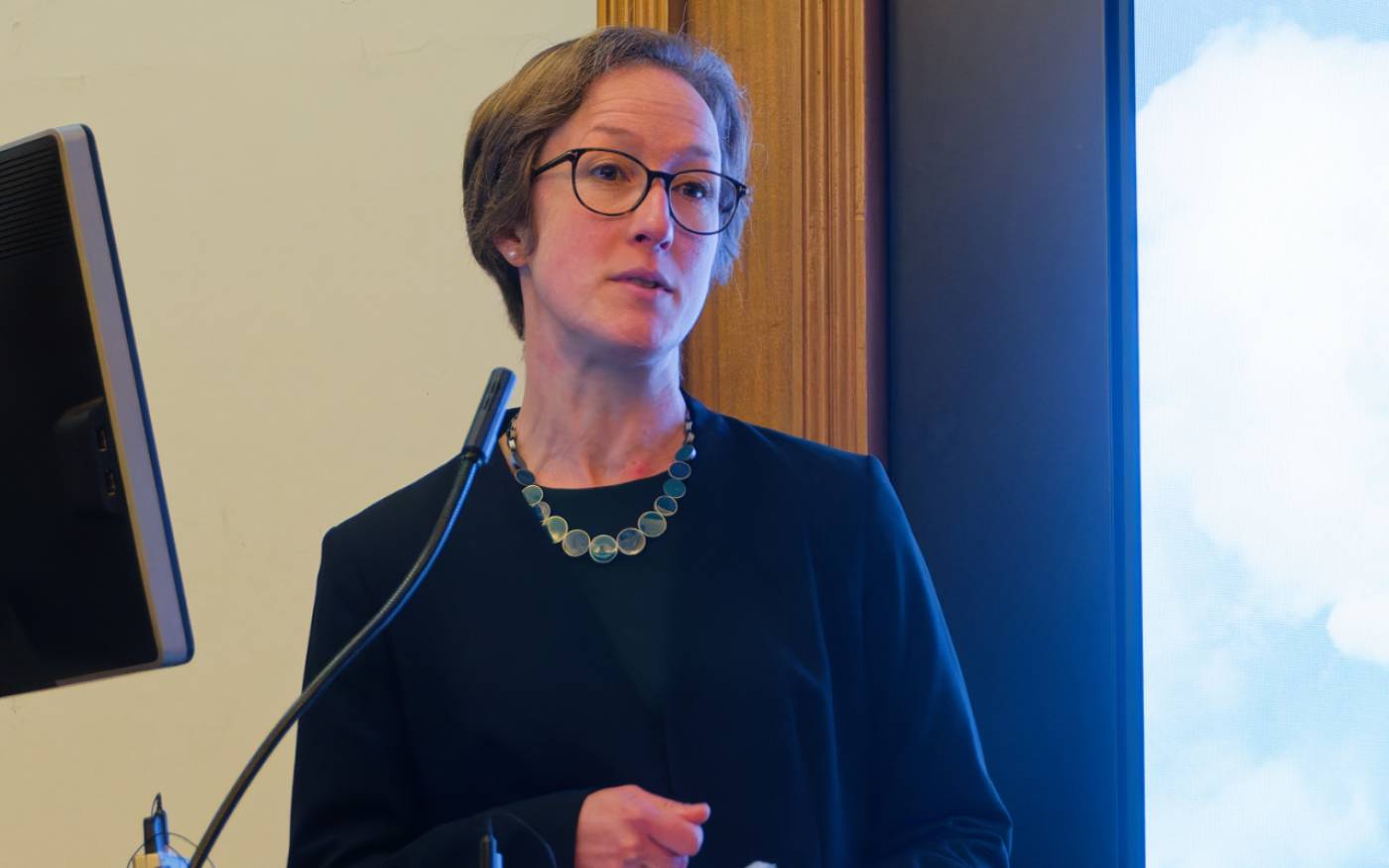
Rachel Solomon Williams, Executive Director of the Aldersgate Group, which represents some of the UK’s largest businesses, NGOs & individuals.
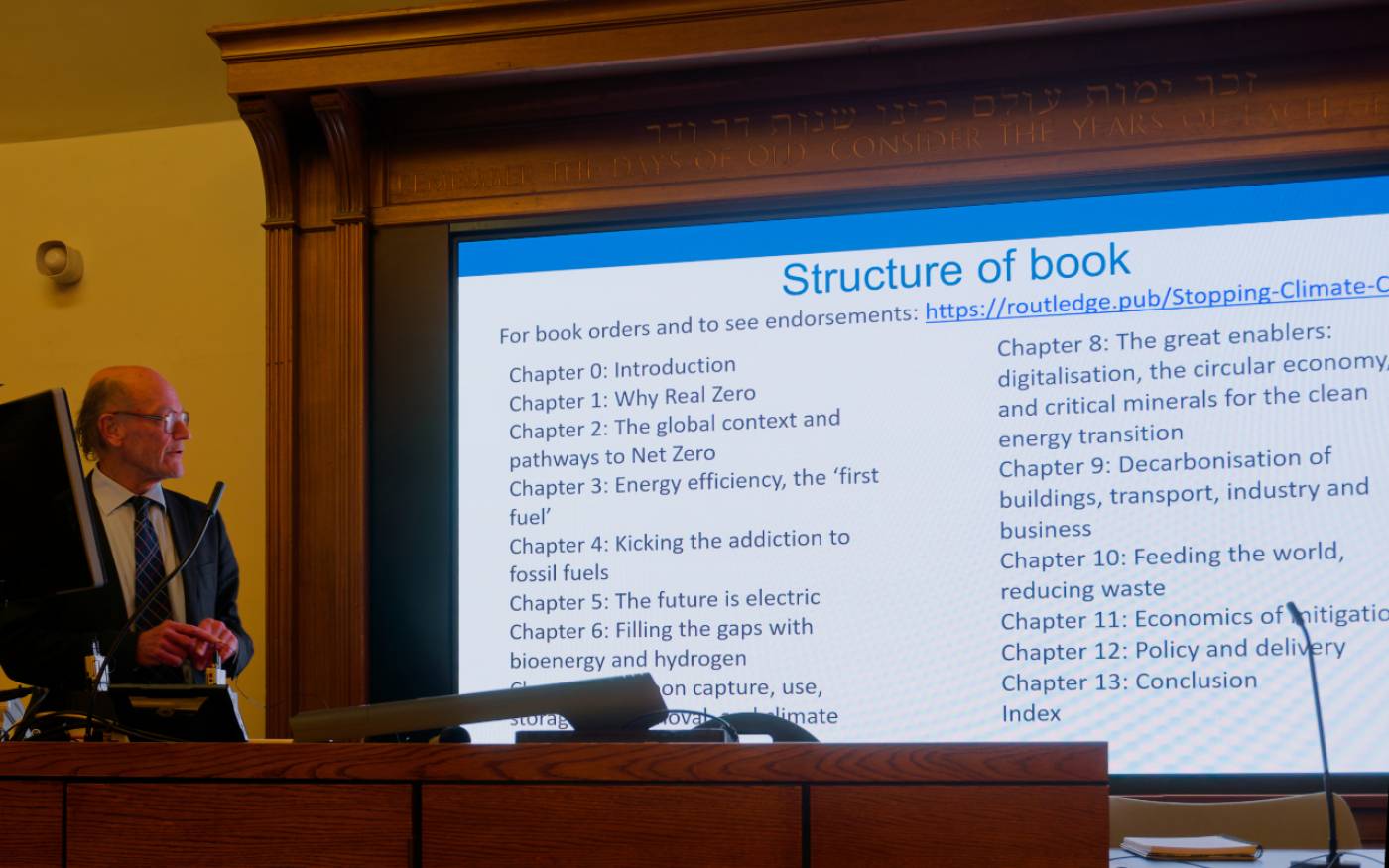
Prof Paul Ekins, UCL Institute for Sustainable Resources, lays out the structure of his new book, Stopping Climate Crisis: Policies for Real Zero
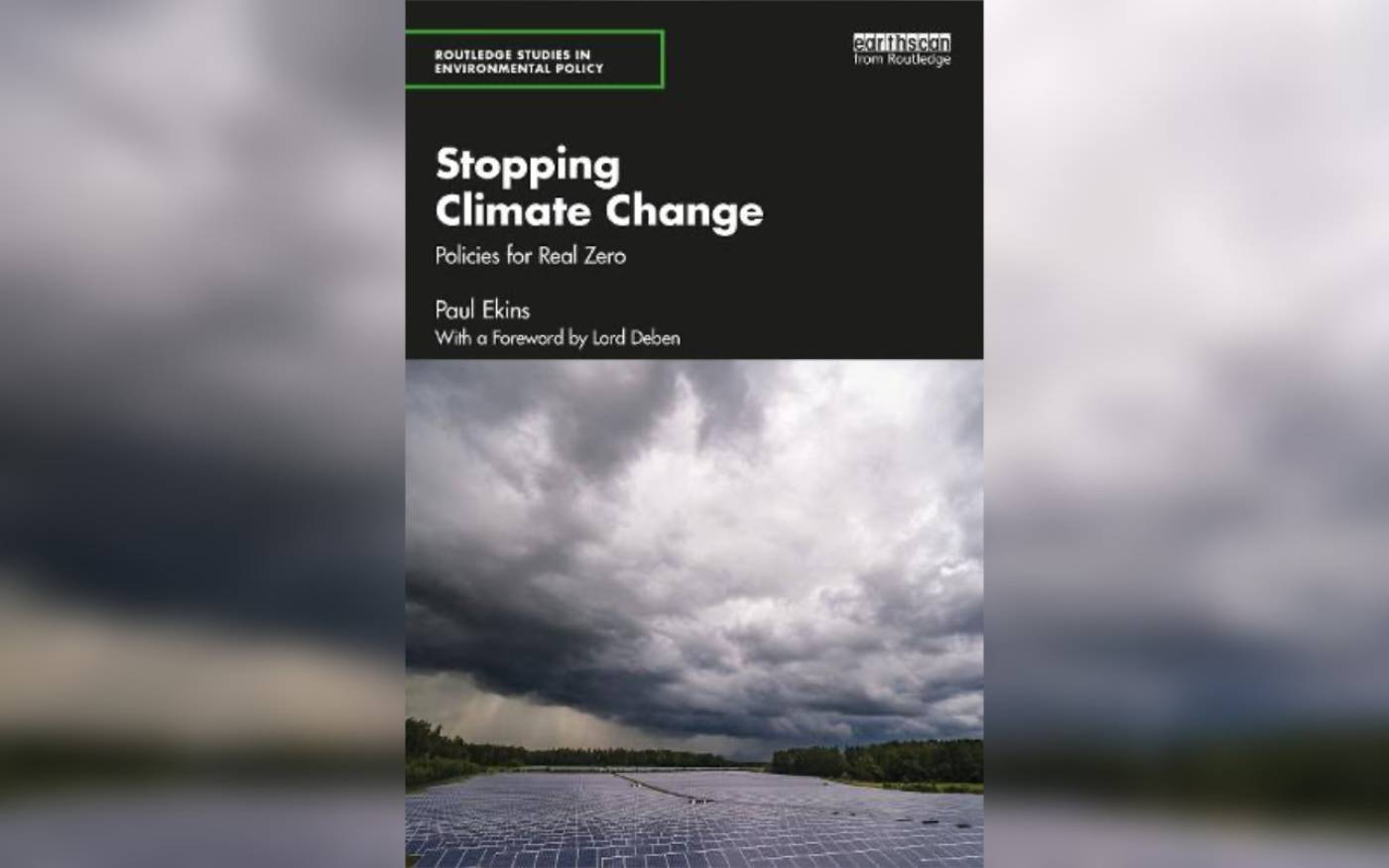
Stopping Climate Change: Policies for Real Zero by Paul Ekins, published by Routeledge
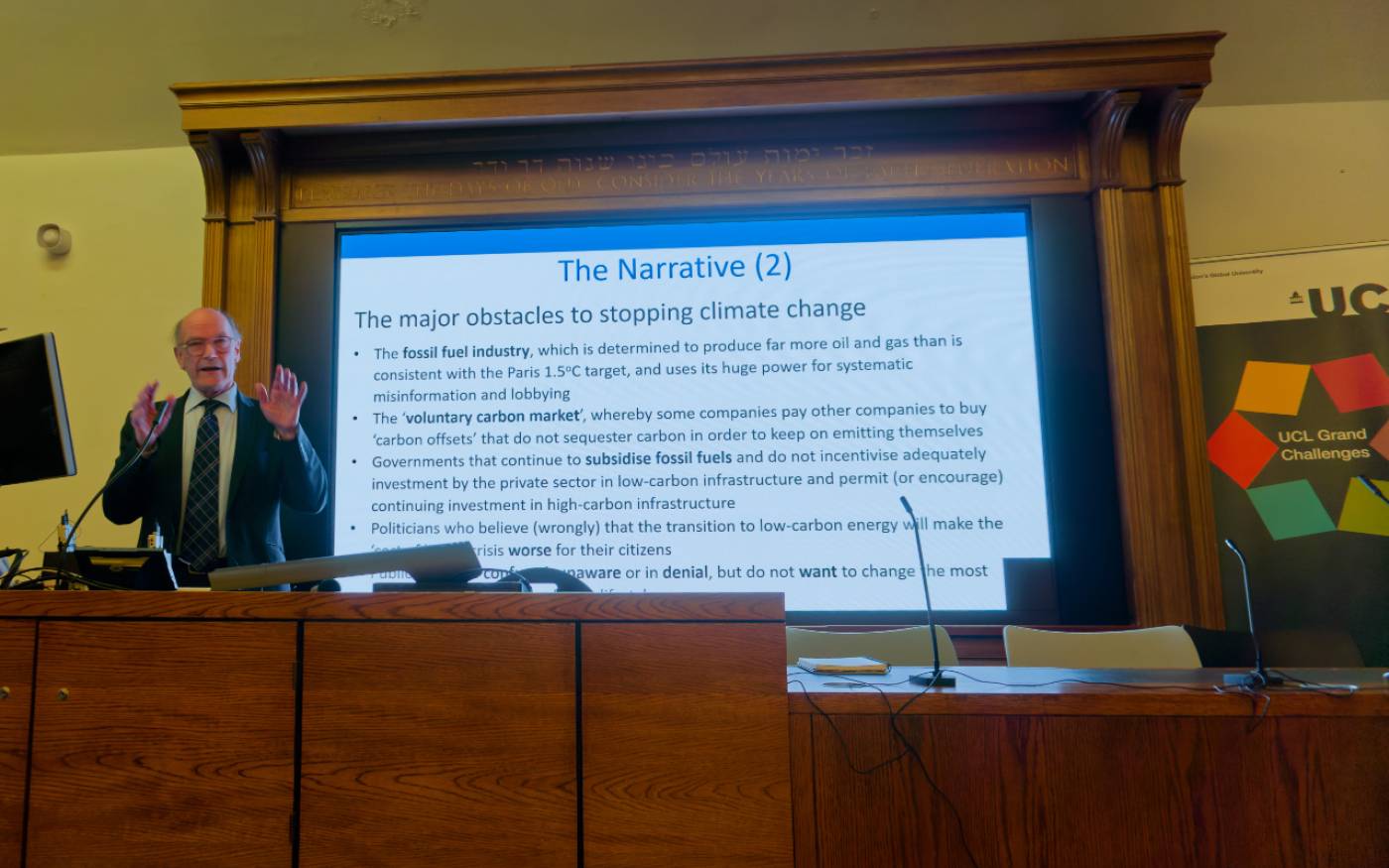
In Paul Ekin's view, we know which policies to use, that those policies work and that we can afford them. So why aren't we doing them?
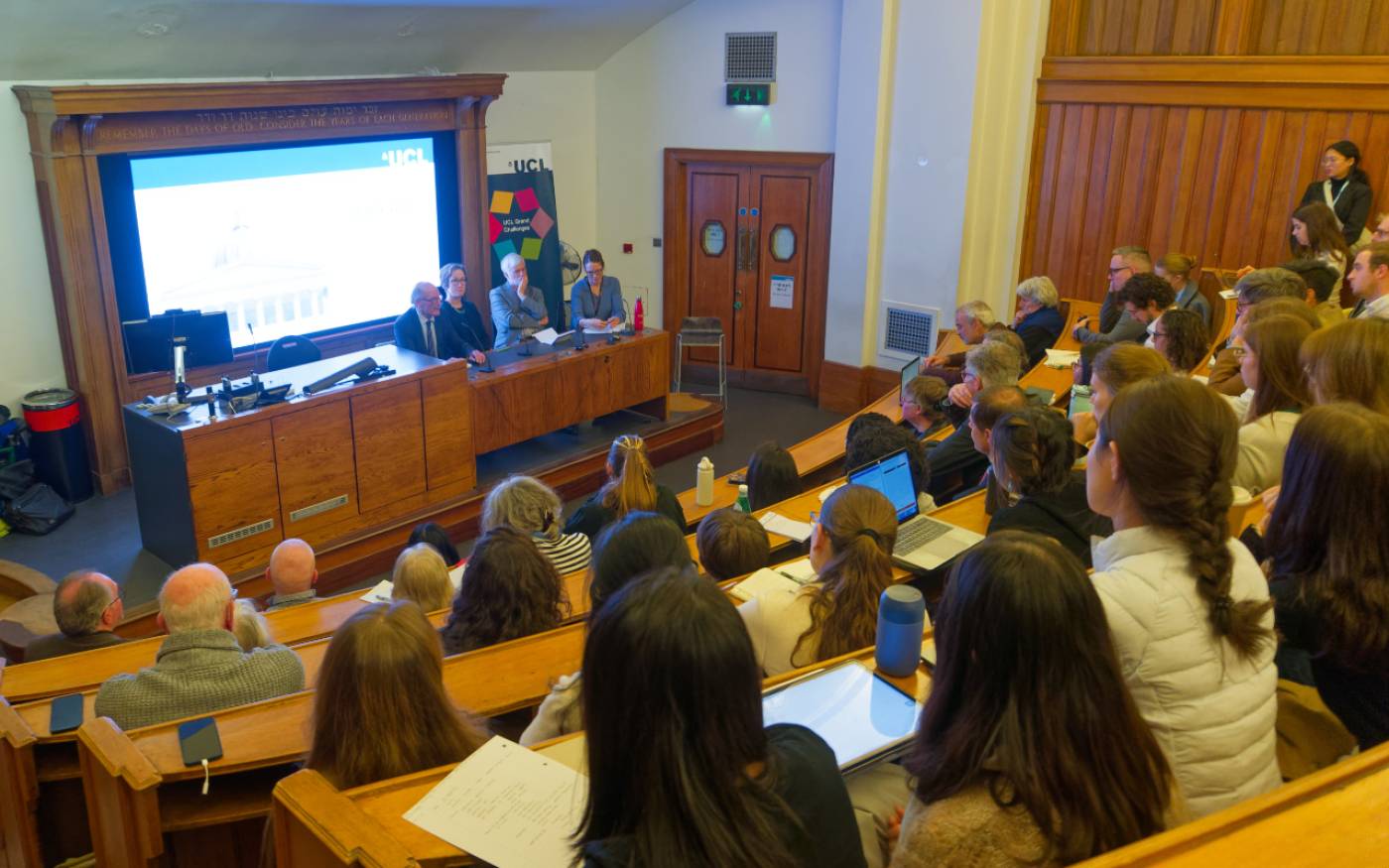
The panel taking questions from the audience at the Stopping Climate Crisis event
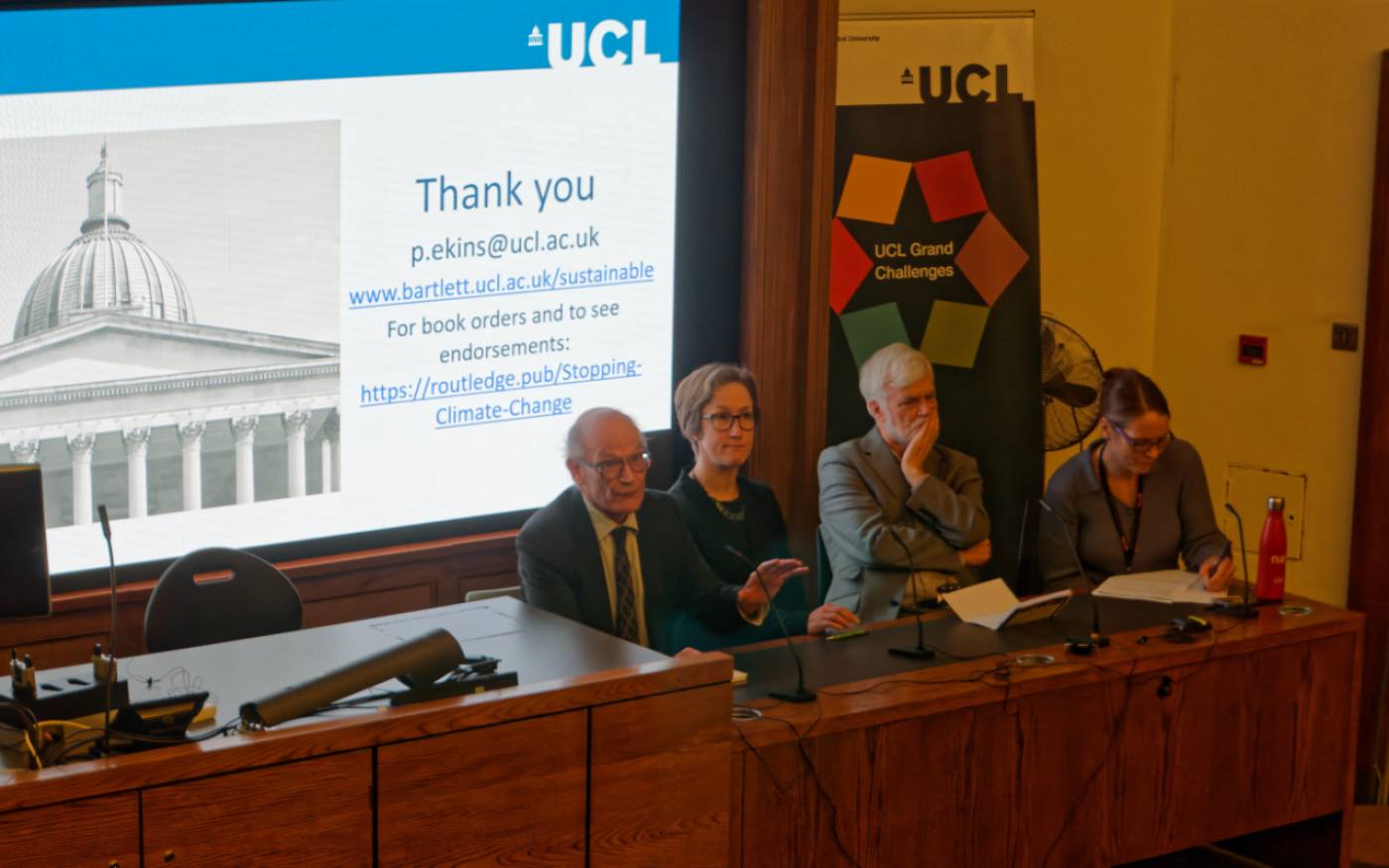
The panel taking more questions at the Stopping Climate Crisis event
Sarah Chaytor (Director of Strategy & Policy, UCL Public Policy) chaired the event which featured contributions from Professor Jim Skea (IPCC Chair for Seventh Assessment cycle), Rachel Solomon Williams (Executive Director, Aldersgate Group) and Professor Ekins. All of the speakers agreed that urgent action was required to move to a decarbonised economy, emphasising that this transition must be both effective and equitable.
Professor Skea summarised his overall message in terms of urgency, agency and equity. Pointing out that some serious consequences of climate change are being seen more quickly than anticipated, but there are still things we can do about it. He also reflected on the global inequalities in current and historic emissions; those countries most vulnerable to the effects of the climate crisis have contributed the least to emissions. Including principles of climate justice will be fundamental in building the consensus for, and social acceptance of, the ambitious climate action we require.
Rachel Solomon Williams brought a view from business. One of her insights was that, contrary to what is often assumed, regulation is needed and desired by the business community. If it is delivered in an equitable way, providing a level playing field, regulation can serve to catalyse progress and offer guidance on how to operate responsibly. Government commitment towards sectoral pathways and a robust regulatory framework are thus important for accelerated climate action.
Professor Ekins pointed to the necessity of ensuring that developing countries can develop economically using low-carbon technologies and the importance of protecting those that are vulnerable during the climate transition at home and abroad. He also highlighted that, if we want to limit warming to 1.5°C, we have a limited carbon budget, and that this budget is rapidly shrinking. He stated that, when it comes to addressing climate change, we know which policies to use, that those policies work and that we can afford them. He then went on to discuss some of the reasons why we aren’t enacting them.
The full video of the panel session from this evening can be viewed below.
The event received overwhelming support and attendance. For any Grand Challenges related queries please direct to grand-challenges@ucl.ac.uk.
 Close
Close

